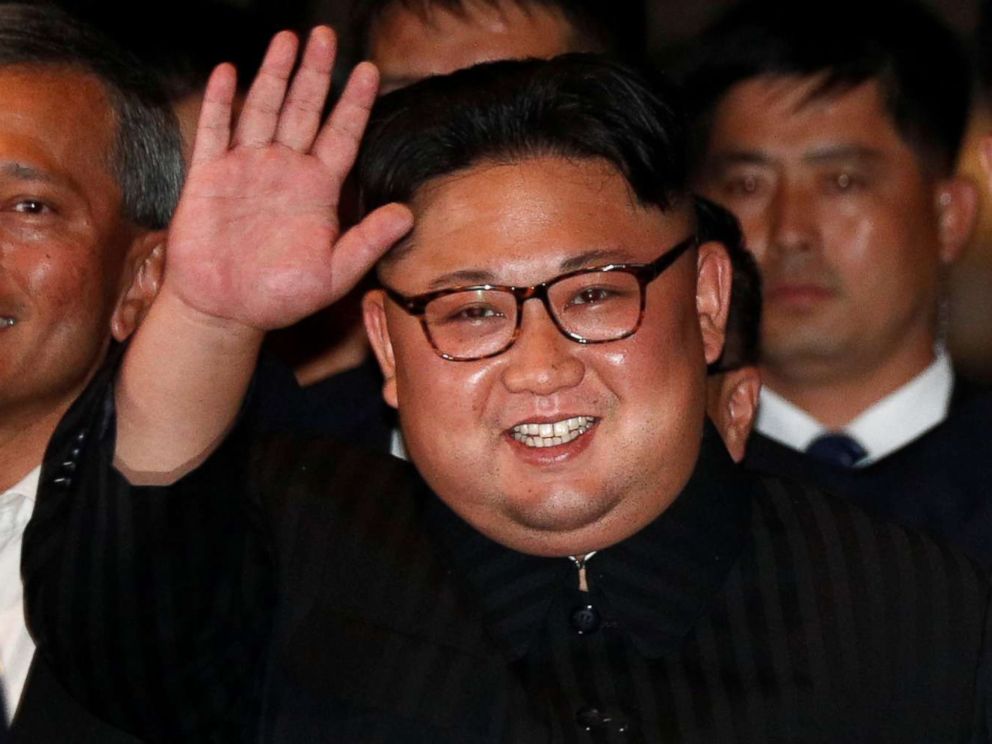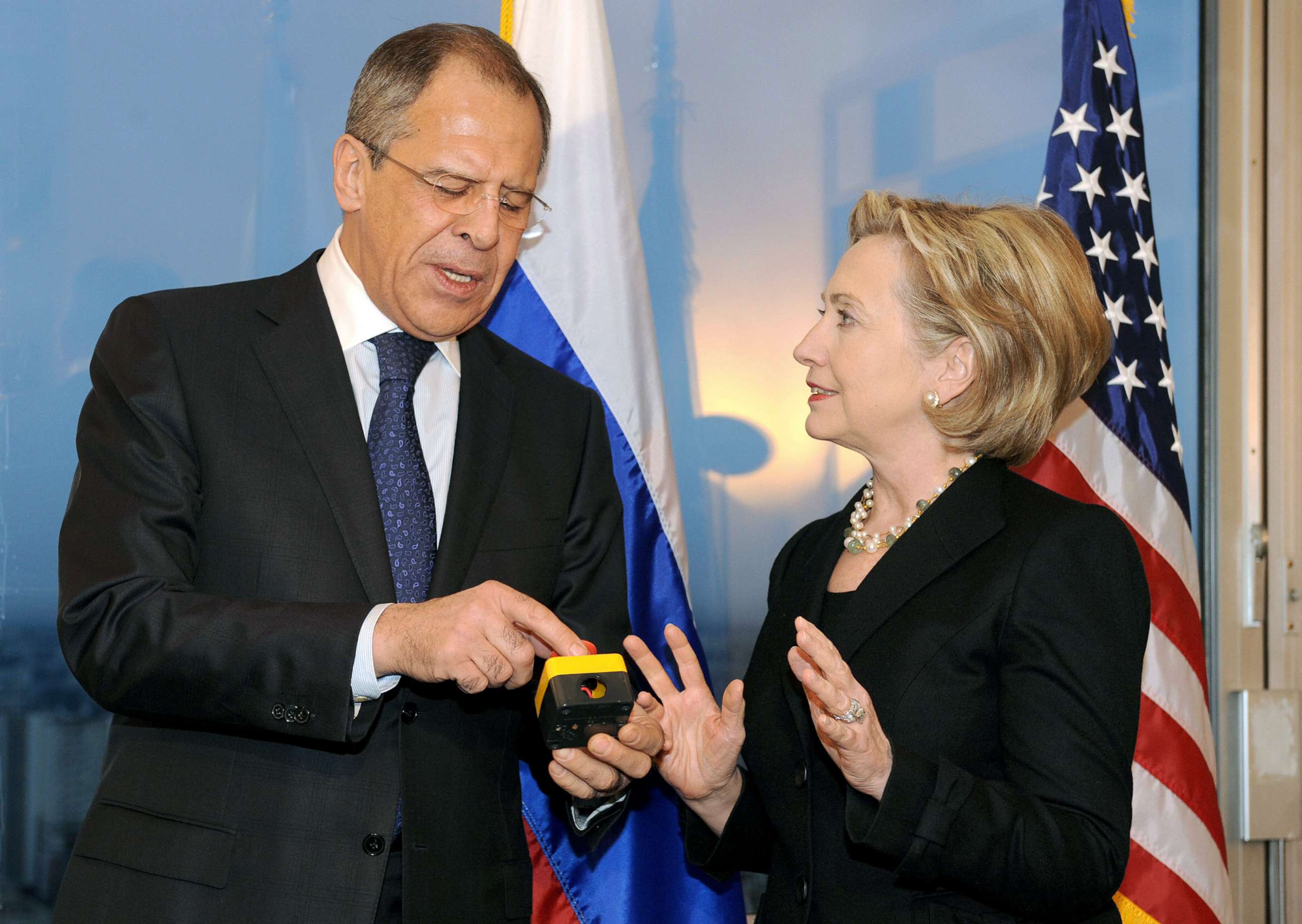Success of Trump-Kim summit could hinge on interpreters who can 'make or break' talks
Trump’s freewheeling style could be difficult even for a veteran interpreter.
WATCH LIVE MONDAY: Live streaming coverage of the North Korea Summit Monday starts at 7 p.m. ET on ABCNews.com or on the ABC News app available on the Apple App Store, Google Play Store, Apple TV App Store, Amazon Fire TV and Roku Channel Store
While President Donald Trump and North Korean leader Kim Jong Un’s first meeting of their historic summit is listed by the White House as a “one-on-one” bilateral meeting between the two leaders, there will be two more important people in the room: the official interpreters for Trump and Kim.
During high-level diplomatic meetings, official interpreters wield an incredible amount of political power as they are tasked with accurately and quickly expressing the thoughts of a leader.
Interpreters translate the words of a president, but they are often also tasked with recalling key bits of policy and taking notes on meetings where they might be the only other American in the room.
“Interpreters are far more important than people know,” Harry Obst, an interpreter for seven U.S. presidents from Lyndon B. Johnson to Bill Clinton, told ABC News. “These people can make or break a big discussion.”
Obst, who served as the Director of the State Department’s Office of Language Services, was sometimes the only other American in the room as a president and the leader of another country hashed out important policies that went on to change history.
He noted the importance of having an interpreter in the room not only for communications but for recording history as well. The interpreter is tasked with taking notes and creating a “Memorandum of Conversation,” an official record of what was said between the two leaders, after the meeting. Their notes are often the only written record of high stakes negotiations and conversations.
Obst said it's important that both Trump and Kim have their own interpreters in the room with them during their first meeting, primarily to corroborate whatever is discussed. He pointed to Trump's conversation with Russian President Vladimir Putin last year as an example of a break in protocol.
"When the other party is hostile like the North Koreans, and if they're the only [party to have] an interpreter in the room, then they have the only record and then they can redact it and write stuff that our president really never said," Obst said. "We would have no way to refute that because we don’t have the American memo of conversation."

Just as Trump and his team of advisors prepared for the summit by studying policy and learning about the unique personality quirks of Kim and members of his regime, interpreters are also expected to study up, Obst said. Interpreters are given the very same classified briefing materials as the president in order ensure they will be able to accurately convey U.S. policy and study the interpersonal style of the leader the president will meet with.
Still, no matter how much an interpreter studies and reviews, slang and idioms don’t always translate smoothly and have, at times, made international headlines.
There are famous examples of translation gone awry: Upon arrival in Warsaw in 1978, President Jimmy Carter told the Polish people about his desires for their future – except his translator, Steven Seymore, told the Polish people he “lusts for their future.”
And there was the “reset” button Secretary of State Hillary Clinton famously gave Russian foreign minister Sergei Lavrov to “reset” their diplomatic relationship. “Reset,” however, was incorrectly translated to “overcharged” on the gifted button.
Obst warns that Trump and Kim's interpreters should have a good understanding of slang and unique words.
"If Trump says the word “punt” the Koreans wouldn't have the foggiest idea what that means," Obst said.

In addition to the challenges of translating language come the challenges of translating the speaking quirks of a leader. Trump’s freewheeling and improvisational style could be difficult for even the most experienced translator.
“It might be more challenging since he doesn’t stay on script, or he says things off the cuff,” Dimitry Zarechnak, who served as the translator for President Ronald Reagan during his one on one meetings with the Soviet Union’s Mikhail Gorbachev, said. “Humor is difficult to translate,” Zarechnak added.
There’s also the issue of nicknames. Trump and Kim have each called each other names like “dotard” and “Little Rocket Man.”
During high stakes negotiations, presidents will often lean on the interpreter to help recall important policy points or clarify a position.
Obst recalls a private meeting with West German Chancellor Kurt Georg Kiesinger and Johnson in 1967. When the chancellor took a break to use the restroom, Johnson turned to his interpreter to help him with a specific military policy.
“Mr. Interpreter, how do I answer that?” Johnson asked. Obst then told him what he would say. When the chancellor returned, Johnson offered his opinion.
“Mr. President, I never knew you were such a military expert,” the chancellor told Johnson.
“Johnson grinned,” Obst said. “And under the table, with his big Texas hand, squeezed my thigh.”



